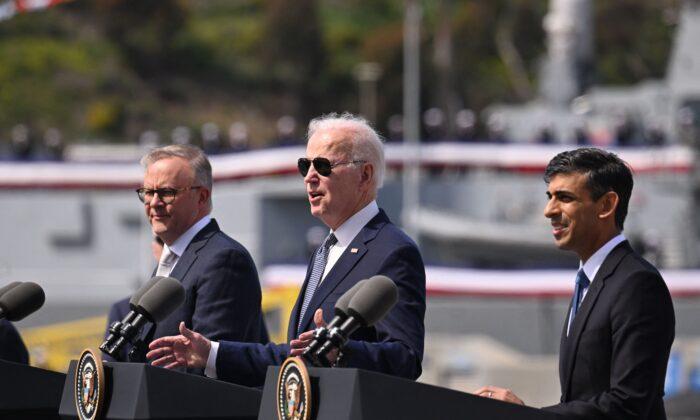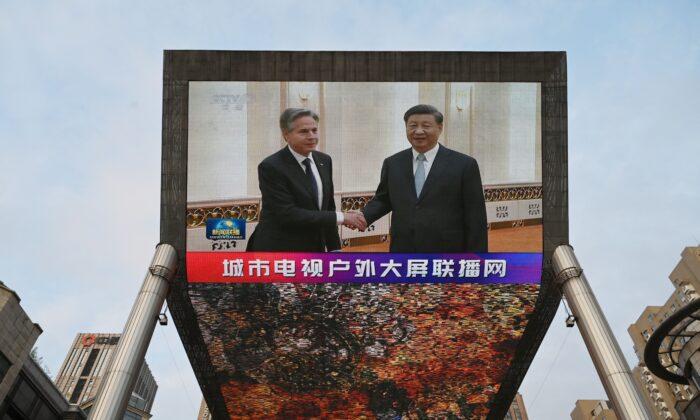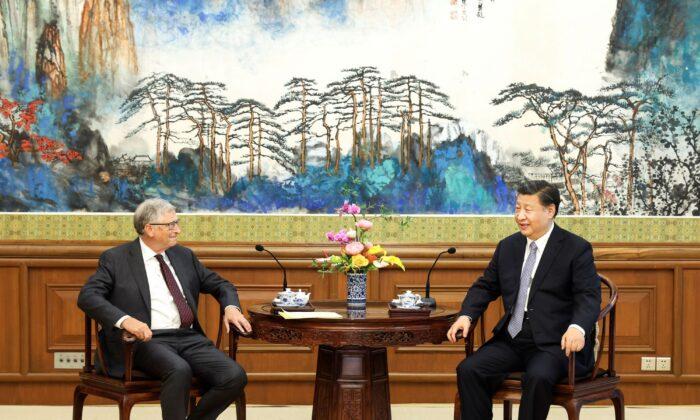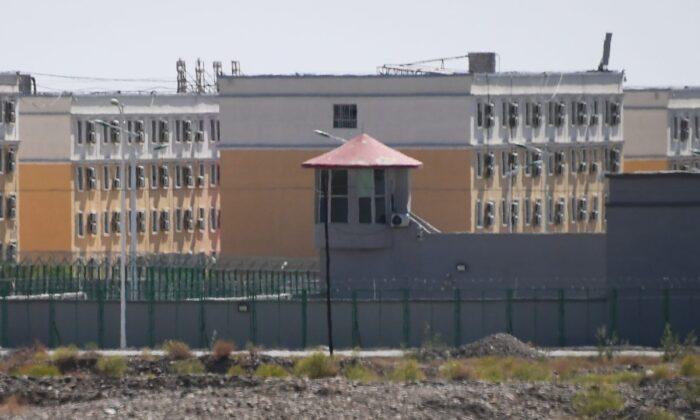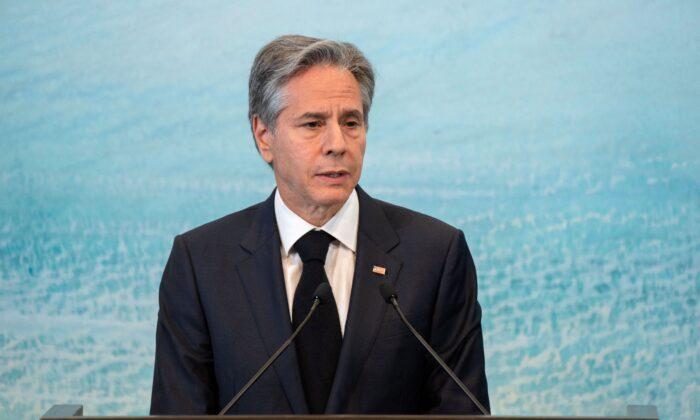The United States should further strengthen relationships with its allies and partners to effectively counter China, according to Roy Kamphausen, president of the National Bureau of Asian Research.
“We’ve strengthened our relationships with allies and partners, which is really an essential feature. The [Chinese Communist Party] CCP, is threatened by the strengthened US alliances,” Kamphausen recently said during an interview with The Epoch Times’ sister media NTD.
Under the AUKUS agreement, Australia will purchase up to five U.S.-made nuclear-powered submarines over the next decade and build new AUKUS class submarines with UK and U.S. technologies in South Australia by 2042.
“We’ve strengthened our relationship with Japan. Japan’s Prime Minister said they’re going to double their defense spending in the next five years,” he said.
The declaration was signed on Apr 26 by two countries’ leaders during South Korean President Yoon Suk-yeol’s six-day visit to the United States.
“We’ve reached a new agreement on nuclear consulting, which is a step maybe to nuclear planning,” the expert noted.
Growing Assertiveness
According to Kamphausen, mounting assertiveness has been seen among allies in the region in pushing back on pressure from China.He cited the case of Australia as an example, saying that the Pacific country is a great case of standing up to Chinese pressure.
Since 2020, Beijing has targeted Australia with an economic coercion campaign on beef, lamb, barley, seafood, wine, coal, timber, honey, and wheat following calls from former Foreign Minister Marise Payne for an investigation into the origins of COVID-19.
In his opinion, however, Australia has placed more importance on the values that it stands for and the partnerships it has with other democracies.
He said that Japan has also stood up remarkably against Chinese pressure.
In January, Yasutoshi Nishimura, Japan’s minister of economy and trade, urged G7 members to team up against China’s economic coercion.
China’s recent actions, such as blocking imports of Taiwanese pineapples and Australian wine, pose a “clear and present danger” to global economies, said Nishimura in Washington.
Growing Tension
Kamphausen noted that the United States and China will see growing tension in the Indo-Pacific region as the U.S. Navy continues very actively patrolling within the South China Sea with the balance to push back and not allow China to “change the status quo by our own inaction.”Meanwhile, he said, the communist regime does not appreciate and observe international law and convention, and it might see the U.S. operations in the western Pacific in accordance with international law as pressure.
The ideological clash between democracy and the socialist system contributes to the growing tension between the two powers as well, in his opinion.
Kamphausen called for the United States and its allies to be proactive and stand against the threat of China as he noted “it plays the power game, and it leverages its strengths, especially against weaker countries.”
